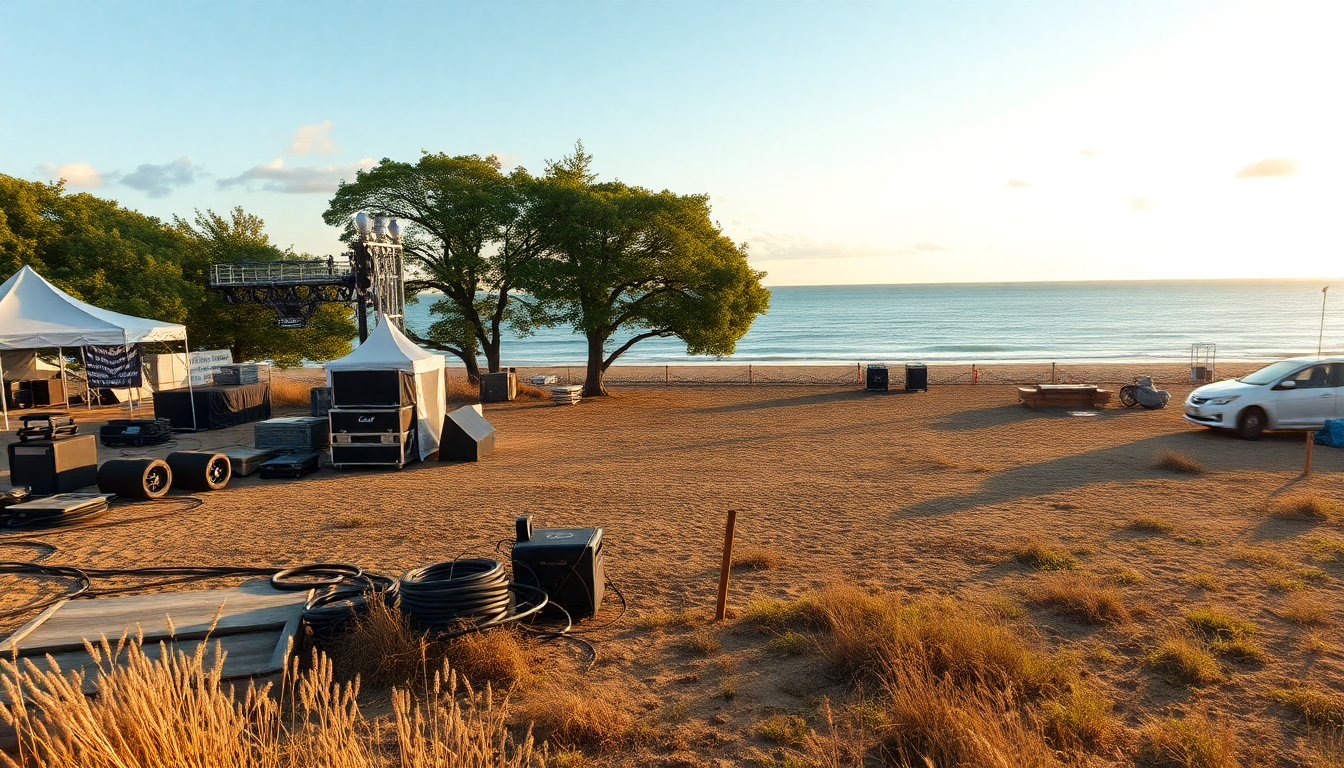Table of Contents
The recent news about the cancellation of the Soundside Music Festival has left many fans and industry insiders scratching their heads. Set against the stunning backdrop of Seaside Park in Bridgeport, Connecticut, and scheduled for September 27-28, this festival was gearing up for an incredible lineup featuring big names like The Killers, Weezer, Hozier, and Vampire Weekend. So, what happened? The organizers cited “circumstances beyond our control” as the reason for this disappointing turn of events, raising some eyebrows and questions about what this means for future events in today’s unpredictable market.
What led to the cancellation?
While the official statement from the Soundside team was brief, it left many fans wondering what exactly went wrong. It’s not unusual in the event world for things to go sideways—logistical issues, financial constraints, or even unexpected events like natural disasters can throw a wrench in the best-laid plans. Originally branded as Sound on Sound, the festival had shown great potential in its earlier years, drawing in crowds and featuring top-tier talent.
The festival kicked off in 2022 under the guidance of Howard Saffan, in collaboration with Live Nation Connecticut and Founders Entertainment, which seemed like a solid start. But let’s be real—the music industry can be a rollercoaster. Events often face sudden challenges that might not be obvious to the public eye. For instance, last year’s festival experienced a major blow when the Foo Fighters had to bow out just weeks before the show—talk about a curveball! Such surprises can really hurt ticket sales and even threaten the viability of the festival itself.
What does this mean for the music industry?
The cancellation of the Soundside Music Festival speaks volumes about today’s music landscape. As festivals finally emerge from the shadows cast by the pandemic, they’re now facing a slew of new hurdles. Rising operational costs, shifting audience expectations, and artists balancing personal commitments are just a few of the challenges at play. And let’s not forget, a canceled event can have serious financial repercussions—not just for the organizers but also for the local economy that thrives on the buzz of festival-goers.
This situation might also make potential festival-goers rethink their plans for future events. With the live music scene constantly evolving, many attendees are becoming more cautious, weighing the risk of purchasing tickets against the possibility of last-minute cancellations. This cautiousness could ripple through ticket sales for upcoming festivals, as consumers hesitate to commit to events that might not happen.
What can we learn, and what’s next?
For those in charge of organizing such events, the Soundside cancellation serves as a crucial reminder about the power of contingency planning. Having solid strategies in place to tackle unexpected setbacks can help minimize financial fallout and maintain the trust of fans. Plus, keeping communication lines open with all stakeholders is key to ensuring that everyone is on the same page and prepared for any changes, which ultimately fosters greater transparency.
Looking ahead, the festival landscape is likely to keep evolving. The industry may need to explore hybrid models or alternative formats to keep audiences engaged effectively. By taking lessons from experiences like the Soundside cancellation, organizers can better navigate the complexities of the live music scene and continue to create unforgettable experiences for fans.


